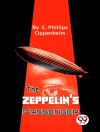As though landing people safely on Mars weren’t daunting enough …
The Space Race of the Sixties, at the height of the Cold War, had been nail-biting—until the Soviet Union forfeited.
In the thirties—amid a second Cold War—China is not about to lose the race to Mars. Nor is the United States. Nor, quite the wildcard, is a secretive cabal drawn from among the world’s multi-billionaires. All of them scrambling to launch deep-space missions on a schedule to make the Sixties contest appear lackadaisical.
Competition that could only continue on the Red Planet.
More treacherous still? The rivalries, resentments, and distrust that simmer just beneath the surface within each expedition.
More difficult yet? Survival on that arid, radiation-drenched, all-but-airless, planet.
These challenges have somehow fallen into the lap of NASA engineer—and reluctant astronaut—Xander Hopkins.
But the thorniest problem of all? The existential quandary for which neither training nor experience has in any way prepared Xander? Making sense of the seemingly unstoppable plague that has already killed. The plague that seems poised to devastate all life on Mars and another world.
Earth.
Over de auteur
Edward M. Lerner worked in high tech and aerospace for thirty years, as everything from engineer to senior vice president, for much of that time writing science fiction as his hobby.
Since 2004 he has written full-time. His novels range from near-future technothrillers, like Small Miracles and Energized, to futuristic mysteries, like The Company Man, to such traditional SF-adventure fare as Dark Secret and his Interstellar Net series.
Collaborating with Larry Niven, Lerner also wrote the space-opera epic Fleet of Worlds series of Ringworld companion novels.
His 2015 novel, Interstellar Net: Enigma, won the inaugural Canopus Award “honoring excellence in interstellar writing.” His fiction has also been nominated for Locus, Prometheus, and Hugo awards.
In shorter forms, Lerner’s writing has appeared in anthologies, collections, and many of the usual SF magazines and websites. He also writes about science and technology, most notably including Trope ing the Light Fantastic: The Science Behind the Fiction.












